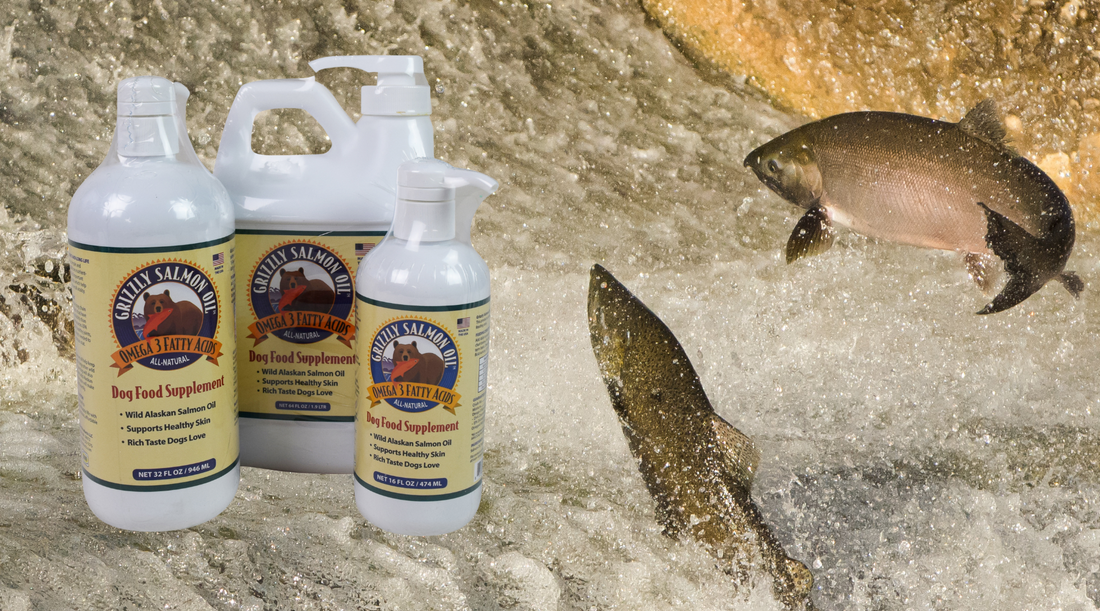Omega 3s are a type of unsaturated fat that is essential for dogs (and humans!) Omega 3s are important for dogs because they help to support a healthy coat, skin, joints, and immune system.
Unlike Omega-6 fatty acids, which are widely available in meats and plants, Omega-3s are more difficult to come by. Dog bodies cannot synthesize these important nutrients and so they must be sourced externally, which is where fish body oil comes into play. Not to be confused with cod liver oil, fish body oils are an excellent source of DHA and EPA – two types of Omega-3 fatty acids that are incredibly important for pet well-being.
How does fish oil benefit your dog or cat?
Incorporating fish oil into your pet's diet brings a myriad of potential advantages. Such benefits may include:
- Enhanced skin and coat health,
- Enhanced immune support
- Can hinder the progression of kidney disease & cancer
- Reduced inflammation due to arthritis or other joint issues, allergies and digestive problems,
- Increased brain and cognitive functions among all life stages, but especially in puppies and senior pooches
- Regulation of the immune system can help bolster an underperforming system
- Calming an overactive immune system in dogs who suffer from allergies or autoimmune disorders.
- For dogs struggling with obesity, fish oil can be a helpful aid in weight loss
How much Fish Oil does your dog need?
The standard dosage is between 100-150 milligrams of EPA/DHA per 10 pounds of body weight for a healthy dog, and up to 300 mg for a compromised canine. If using fish oil capsules for your canine companion, carefully measure out the appropriate dosage as stated on the label. Many prefer a liquid pump to serve the oil over your pet’s food. Capsules may be used but in order to ensure maximum absorption, it's best to pierce and squeeze the capsules directly onto their food rather than letting them pass through their digestive system quickly.
A potential side effect of using Omega-3s is that if given in excess they can cause digestive distress, vomiting & diarrhea.
How can I pick out the best fish oil?
Fish oil is an essential dietary supplement, and to get the best benefit it's important to know which fish offer the highest quality. Of all cold water species, salmon has been identified as having especially high fatty acid content, making it the top choice for supplements. Other species that have high fatty acid content include pollock, sardine, anchovy and others. To make sure you're getting the most from your fish oil supplements, be sure to look for these higher fat formulations.
There’s Omega-3s in my kibble, is that good enough?
No matter what type of diet your dog is on, fish oil is essential. In recent times, kibble makers have begun adding this ingredient to their products; however, fish oil is far too volatile a substance to withstand the processing that goes into making a kibble food. It breaks down quite easily in the presence of heat and/or light, both of which can render it inactive. To guarantee that your pet gets the most benefit from this nutritional supplement, it is best to add it when feeding time rolls around.
Are Omega-3s available in other foods?
While it is possible to find Omega-3s in grassfed meat, the overuse of our land and depletion of its nutrients have made it increasingly difficult to access those Omega-3 sources. To ensure that our pets get enough of this essential nutrient, there is an easy solution: supplementing with good quality fish oil. This simple approach is a great way to ensure your pet has all they need.
What brand should you use?
You should want to ensure that the fish oil supplement you are giving to your dog is of high quality and free from harmful contaminants. To do this, you must read the label and choose a reputable brand that sources its fish from clean waters. You can look for third party certifications to ensure that the products meets strict purity and potency standards.
Additionally, store the product in a cool dry place and use it by the expiration dates to ensure that it remains fresh & effective. These steps should offer you peace of mind knowing that you are providing a safe & beneficial product to your pets.
At A Place for Paws, we find Grizzly Pollock & Salmon oil for Dogs and Cats checks each of these boxes. They offer a standard Omega 3 supplement, a Hip & Joint supplement that includes Glucosamine & Chondroitin and a product with Hemp added to reduce inflammation and discomfort. We recommend Grizzly oil for use with kibble food or a raw food diet.
Keep your pet healthy – incorporate fish body oils into their diet!

